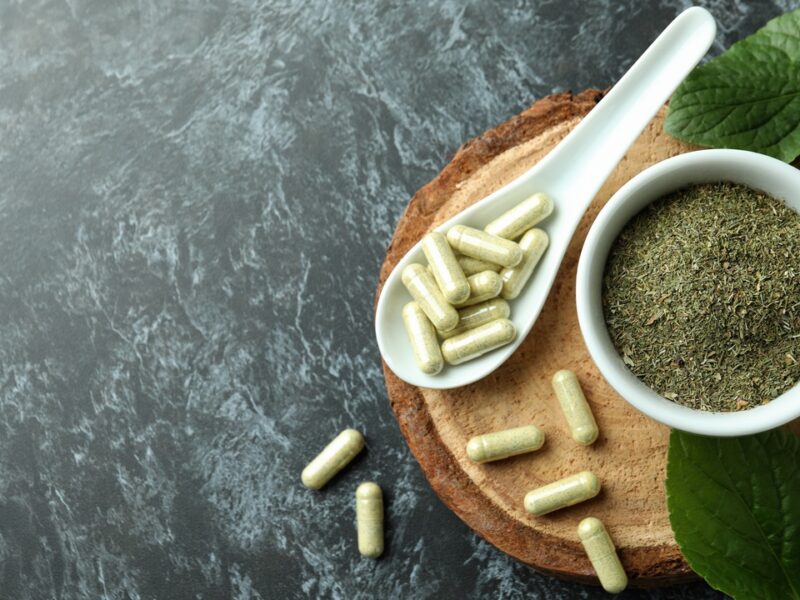Have you ever thought about how something that lifts your spirits might also affect your diet? Let’s look into kratom! This popular herbal supplement is celebrated for alleviating pain and boosting mood. But beyond its therapeutic benefits, have you considered its impact on your nutritional intake?
Kratom is often discussed in terms of mental and physical relief, but many wonder about its caloric content and nutritional value. The question is, does kratom have calories or any nutrients that may affect your diet?
This guide will discuss kratom’s nutritional benefits, including calories, vitamins, and other dietary benefits. Knowing how kratom fits into your diet is important, especially if you’re watching what you eat.
So, let’s unpack everything and get a complete view of what kratom brings to the table nutritionally.
Kratom’s Nutritional Profile
Kratom, mainly known for its medicinal benefits, isn’t typically known for its nutritional content. This herbal supplement comes from the leaves of the Mitragyna Speciosa tree in Southeast Asia and is used for its psychoactive properties. Still, a common question is, does kratom have calories?
Nutritionally, kratom doesn’t offer much. It contains minimal calories and lacks significant amounts of essential nutrients like fats, carbohydrates, or proteins. The primary compounds in kratom are alkaloids, such as mitragynine and 7-hydroxymitragynine, which are critical to its therapeutic effects but don’t contribute to nutritional value.
While kratom does have trace amounts of vitamins and minerals such as calcium, potassium, and magnesium, the quantities are too small to fulfill dietary needs or make a substantial health impact.
Thus, while it holds value for pain relief and mood enhancement, kratom doesn’t have any significant calories or nutrition. If you are buying kratom from reputable sources such as HappyGoLeafy, then you can get the general overview of what you might find in a typical serving of kratom based on the strain:
- Serving Size: 2 grams
- Calories: 7.4 kcal
- Carbohydrates: 1.5g
- Protein: 0.2g
- Fats: Trace amounts
- Sodium: Trace amounts
- Iron: 0.5 mg
- Potassium: 18.5 mg
- Calcium: 13.2 mg
These figures are estimates and can vary between different kratom strains. They provide a basic idea of kratom’s nutritional content for educational purposes and are not intended for rigorous dietary planning.
Caloric Content Of Different Kratom Forms
Kratom, available in various forms such as powder, capsules, and leaves, has a minimal caloric content, making it negligible for most dietary considerations. Here’s a closer look at the caloric content of different kratom forms based on a typical serving size:
1. Kratom Powder:
- Serving Size: 2 grams
- Calories: Approximately 7.4 kcal
Does kratom have calories? The answer is yes. But fret not! In its most commonly used form, kratom powder has a minimal caloric impact, making it easy to incorporate into a diet without significant caloric addition, especially when mixed with liquids or foods.
2. Kratom Capsules:
- Serving Size: 1 capsule (approximately 0.5 grams of kratom powder)
- Calories: Around 1.85 kcal per capsule
Capsules provide a convenient and discrete way to consume kratom, with each capsule containing only a small fraction of calories, contributing minimally to daily caloric intake. This is because it contains smaller amounts of kratom.
3. Kratom Leaves:
- Serving Size: 2 grams (dried leaves)
- Calories: Approximately 7.4 kcal
Dried leaves, often used to make tea, contain roughly the same amount of calories as powdered kratom. However, the actual caloric intake can vary slightly depending on the drying process and the age of the leaves.
Despite the form it takes, kratom contributes a very low number of calories. This makes it an easy addition to the diet of people who always monitor their caloric intake closely without worrying about disrupting their nutritional goals. This minimal caloric content is particularly appealing for users interested in the therapeutic benefits of kratom without significant dietary impact.
How to Calculate the Calories in Your Kratom Serving?
Now that we’ve answered the question, “Does kratom have calories?” calculating the calories in your kratom serving is now simpler, especially considering its minimal caloric content. Here’s a simple guide to help you determine how much energy you’re getting from your kratom:
1. Determine the Form and Amount
- First, identify the form of kratom you are using—powder, capsules, or dried leaves.
- Measure or count out your typical serving size. For powder or dried leaves, this might be around 2 grams; for capsules, note how many capsules make up your usual dose.
2. Use Standard Caloric Values
- For kratom powder and dried leaves, a general estimate is about 7.4 kcal for every 2 grams.
- For capsules, if each contains about 0.5 grams of kratom powder, you can estimate around 1.85 kcal per capsule.
3. Calculate Total Calories
- Powder/Leaves: Multiply the amount of kratom (in grams) by 3.7 kcal to find the total caloric content. For example, if you use 4 grams of kratom powder, the calculation would be 4 x 3.7 = 14.8 kcal.
- Capsules: Multiply the number of capsules you take by 1.85 kcal. For instance, if you take 4 capsules, the total caloric content would be 4 x 1.85 = 7.4 kcal.
4. Adjust for Frequency
- Consider how often you consume kratom in a day and multiply the single-serving caloric content by the number of servings you consume to get your total daily intake from kratom.
5. Record and Monitor
- Keep a log of your kratom intake alongside other dietary components if you are monitoring your caloric intake for health or diet purposes.
This method provides a rough estimation rather than a precise value, considering the variability in kratom’s botanical makeup. However, given the low caloric content of kratom, these estimates are usually sufficient for general dietary monitoring.
If you are using kratom frequently and are concerned about every calorie due to strict dietary constraints, consider discussing your usage with a healthcare provider or a nutritionist who can offer more personalized guidance.
Impact of Kratom’s Caloric Content on Your Diet
The caloric content of kratom is so low that it has little impact on your diet. So, if you’re still wondering, does kratom have calories that might affect your nutritional intake? The answer is no in any significant way. Here’s a brief overview of how kratom’s minimal calories may influence your diet:
- Minimal Caloric Addition: At approximately 7.4 calories per 2 grams, kratom adds a negligible amount of calories, even with multiple daily servings.
- No Impact on Weight Gain: With its low-calorie content, kratom does not contribute to weight gain, fitting easily into weight-conscious or calorie-restricted diets.
- Nutrient Considerations: Although kratom contains trace minerals like iron and calcium, the amounts are too minor to contribute significantly to daily nutrient requirements and should not be considered a nutritional supplement.
- Dietary Integration: Kratom can be added to your diet without needing calorie management adjustments, making it convenient for those using it for its psychoactive effects or medicinal benefits.
- Considerations for Sensitive Individuals: For people with dietary restrictions or sensitivities, kratom’s low caloric impact means it can be added without affecting dietary compliance. Nonetheless, consulting with a healthcare provider is recommended for specific advice.
Conclusion: Does Kratom Have Calories?
While the answer to “does kratom have calories” is technically yes, its impact on diet is minimal due to its low caloric content. Whether used in powder, capsule, or leaf form, kratom provides only a nominal amount of calories, making it an easy addition to any diet without significant dietary changes.
It contains trace amounts of minerals like iron and calcium, but not enough to contribute meaningfully to daily nutritional needs.
For people who incorporate kratom for its pain-relieving and mood-enhancing properties, there’s no need to worry about its effect on caloric intake. This makes kratom a practical choice for individuals managing their calories or seeking minimal dietary disruption.
Thus, while kratom offers certain health benefits, it does not serve as a significant source of nutrition or calories, ensuring that its use is compatible with a variety of dietary requirements.
Want to unlock greater wellness?
Listen to our friends over at the Wellness + Wisdom Podcast to unlock your best self with Drew Canole of Organifi:








 Is Cannabidiol (CBD) Bad For Your Liver?
Is Cannabidiol (CBD) Bad For Your Liver?